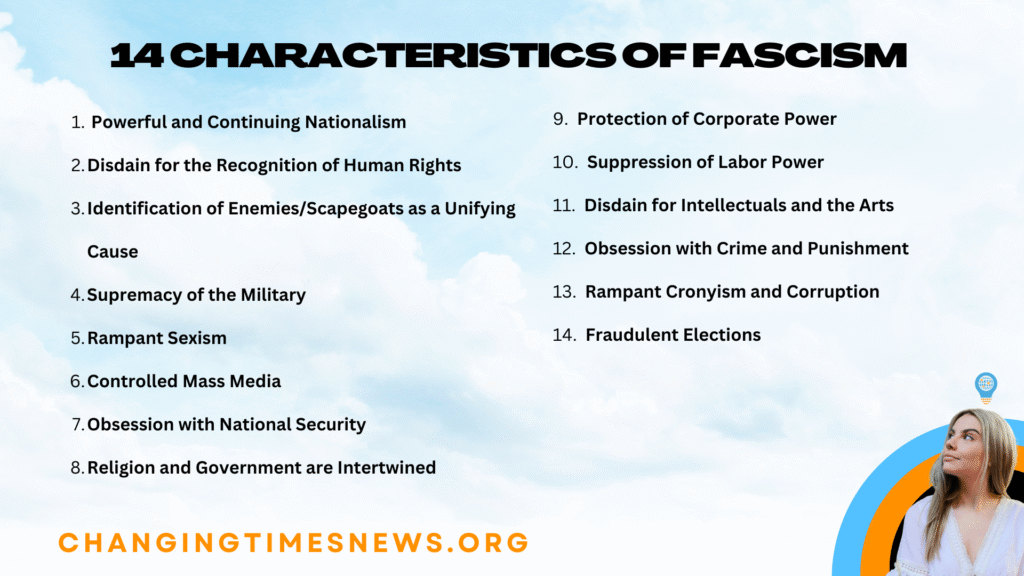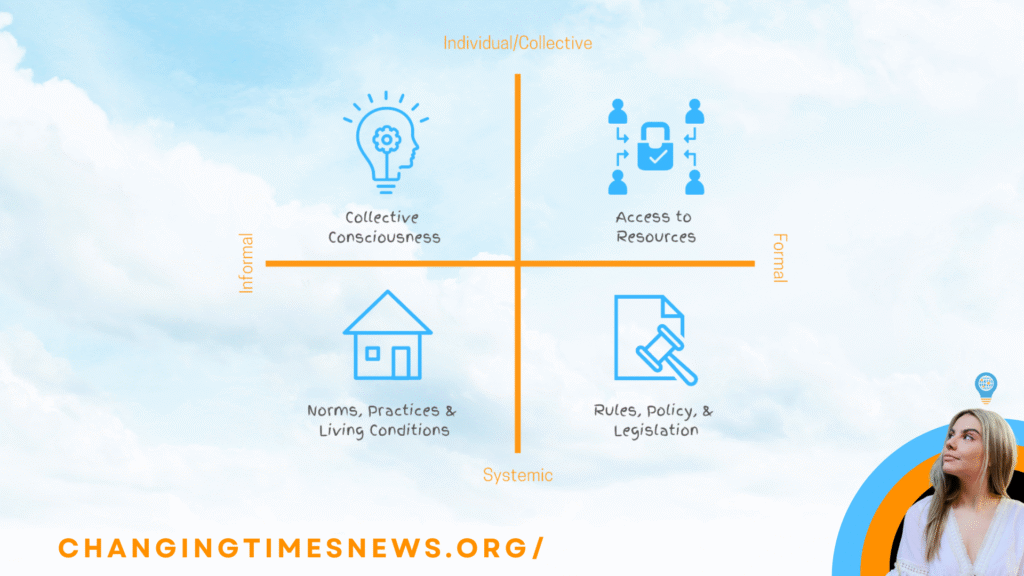When Italian philosopher Umberto Eco published his 1995 essay Ur-Fascism, he offered the world a warning: fascism is not confined to the history books. Instead, it can re-emerge in new guises, identifiable by 14 recurring characteristics rather than a single rigid definition.
In the latest episode of the Changemaker Q&A podcast, I take listeners through these characteristics—sometimes called the “14 signs of fascism”—and ask the question many Australians have been quietly wondering: is the United States under Donald Trump exhibiting fascist tendencies, and why should we care from halfway across the world?
What Fascism Looks Like
Fascism first took hold in Europe during the early 20th century, most infamously in Mussolini’s Italy and Hitler’s Germany. It is marked by authoritarianism, ultranationalism, and the elevation of a “strongman” leader who claims to embody the will of the nation.
Eco’s framework highlights patterns such as:
- Cult of leadership – the portrayal of a single leader as infallible.
- Political power through myth and lies – propaganda and conspiracy theories that undermine truth.
- National decline and victimhood – the belief that the nation is under siege and needs saving.
- Scapegoating of enemies – targeting minority groups or dissenters as existential threats.
- Disdain for human rights and intellectuals – weakening democratic norms and silencing critical thought.
The podcast examines how many of these traits have resurfaced in the U.S. today—from denial of election results to the glorification of militarism and the erosion of reproductive rights. While America is not Nazi Germany, the parallels are cause for concern.

Why Australians Should Pay Attention
For Australians, the relevance may not be obvious. But America’s political climate matters beyond its borders. The United States remains one of our closest allies, shaping Australia’s foreign policy, trade, and even cultural norms.
As I argue in the episode, platforms like TikTok have only amplified U.S. influence on the way young Australians think, debate, and act. If American democracy weakens, its ripple effects will be felt globally.
Political scientists echo these warnings. According to Freedom House, the U.S. has seen a notable decline in democratic indicators over the past decade. Similarly, The Economist Intelligence Unit’s Democracy Index downgraded the U.S. from a “full democracy” to a “flawed democracy” as early as 2016.
A Mirror for Our Own Politics
Australia is not immune to the lure of exclusionary politics. Populist nationalism, opposition to multiculturalism, and book bans creeping into Western discourse should serve as red flags. Observing America’s struggles can act as a mirror, showing Australians the risks of complacency.
If we dismiss authoritarian tendencies as “just American problems,” we may overlook how similar forces could erode our own democratic institutions. The real question is not whether America is fascist today, but whether we are prepared—globally and locally—to resist the steady creep of authoritarianism.
As I remind listeners, social change thrives on unity, inclusion, and democratic integrity. Authoritarianism thrives on division. Which path we take will depend on how vigilant we are, not only as nations but as individuals.


